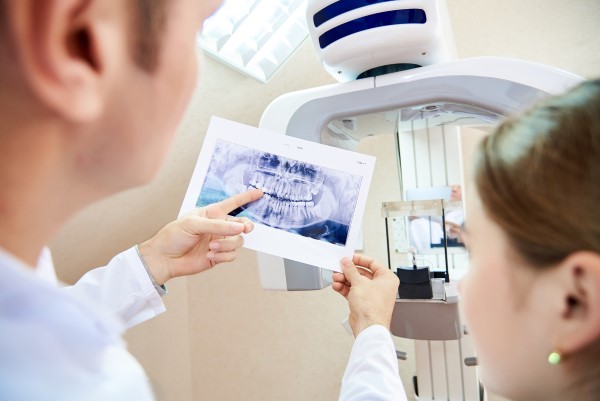What to Expect When Getting X-rays From a General Dentist

A general dentist uses diagnostic tools like X-rays to evaluate the health of your mouth. These enable the dentist to see inside teeth, gum tissues, and bone structures in the mouth. X-rays assist in the early diagnoses of various dental issues, like tooth decay, gum disease, and orthodontic problems. The type of dental X-ray that a general dentist decides to use varies depending on what they intend to evaluate.
How a general dentist uses X-rays to evaluate your mouth
X-rays are typically performed with the patient upright in a dental chair. The oral professional performing the procedure might cover up the patient’s thyroid and chest with a lead collar and apron, respectively. One or more X-ray sensors are then inserted into the patient’s mouth and used for capturing the picture.
Most people do not feel any discomfort or deal with any other issues when getting X-rays. Where the sensors are placed affects how comfortable the experience is for each patient. For example, the sensors placed at the back of the mouth can trigger a sensitive gag reflex. Children in particular tend to have sensitive gag reflexes, which can make getting X-rays more challenging for them.
The size of a patient’s mouth also affects how comfortable taking X-rays feels. People with smaller mouths are more likely to feel uncomfortable with a sensor in their mouth. The different types of X-rays used in the diagnosis and treatment of dental issues include the following.
Bitewing X-rays
These are the most commonly used types of X-rays in dentistry, and they are usually taken yearly to help detect cavities and issues with the structures that support teeth.
Periapical X-rays
These X-rays are used to take a complete picture of a tooth, from the top of its crown to its root. Also known as PAs, these X-rays are typically recommended when a patient comes into the clinic complaining about symptoms that affect a specific tooth. PAs can be used to diagnose various issues, like deep decay inside a tooth, defects in the bone structures that surround teeth, and abscesses.
Occlusal X-rays
These are specialized X-rays that are used to examine the floor or roof of a patient’s mouth. Dentists can use them to diagnose issues like tumors, jaw abnormalities, and impacted teeth.
Panoramic X-rays
A panoramic X-ray is ordered every three to five years to record a patient’s bite. It is also used to evaluate patients who are seeking orthodontic treatments to address teeth or jaw alignment issues.
X-rays and radiation
Some people are reluctant to get X-rays due to concerns about radiation. Those fears are unfounded because dental X-rays expose patients to less radiation than they are exposed to by the sun daily. Dentists also take precautions, like the use of lead collars and aprons, to minimize radiation exposure.
X-rays paint a clear picture of your mouth
X-rays enable a general dentist to see the things in your mouth that they cannot see with the naked eye, allowing them to detect developing issues early on. Call or visit our Tucson clinic to learn more about dental X-rays.
Request an appointment here: https://www.simplysmilesdentist.com or call Simply Smiles Dentistry at (520) 368-3351 for an appointment in our Tucson office.
Check out what others are saying about our dental services on Yelp: General Dentist in Tucson, AZ.
Related Posts
General dentistry aims to keep your teeth and gums healthy by educating you about proper oral hygiene and performing preventative treatments that protect against issues like gum disease and tooth decay. The American Dental Association recommends going to the dentist at least two times per year. These visits are used to evaluate the condition of…
When it comes to general dentistry practices, these offices typically include primary care dental providers. A general dentist focuses on diagnosing dental problems, treating dental issues, and overall oral health care. General dentists may provide gum care, teeth cleaning, root canals, veneers, bridges, and preventative dentistry. However, just as there are dentists that focus on…
You might think that if you are diligent about brushing and flossing at home, you can visit a dentist's office less often. However, general dentistry professionals agree that regularly visiting a dentist is important for your dental and overall health, even with good oral hygiene. In addition, there are numerous reasons it is a good…
Your experienced general dentist can repair your cavities. Assessing your teeth will come first. Then, the dentist will discuss the treatment options with you. Knowing which option can help you the most can prepare you for the visit. Here are the details about the different cavity treatments that your general dentist can discuss with you.The…
